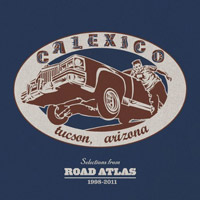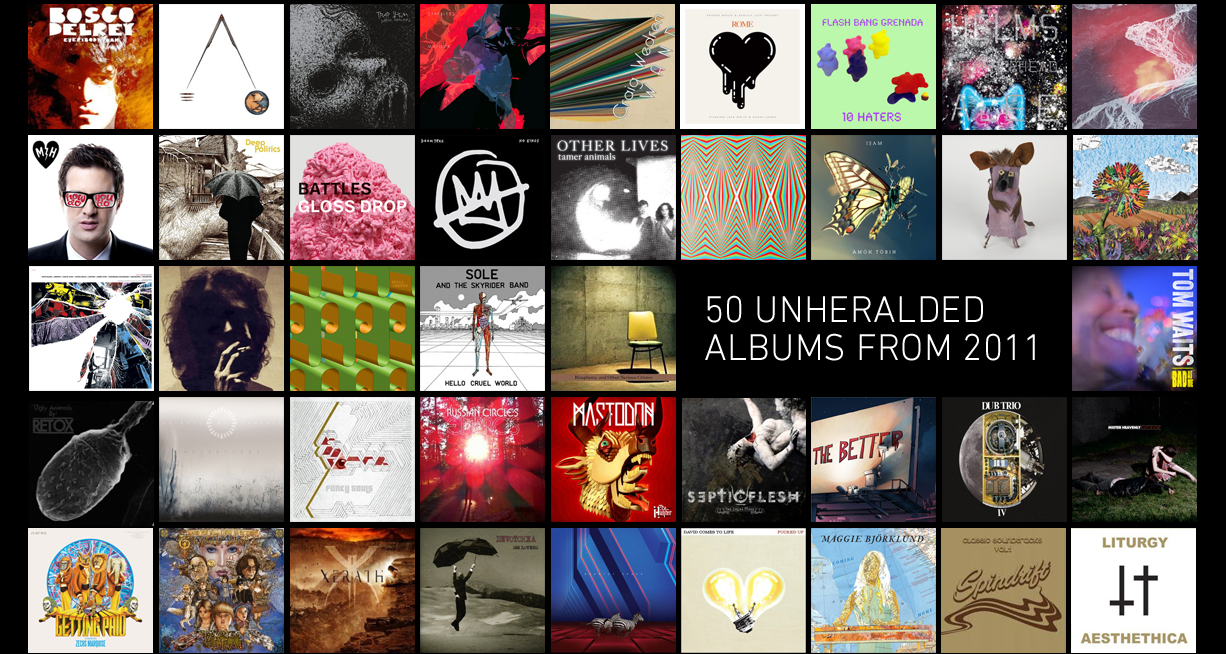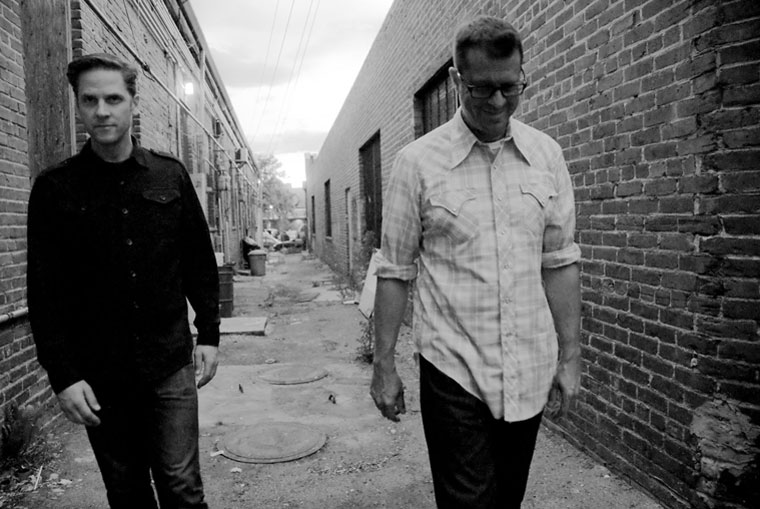 Calexico: Road Atlas 1998–2011 limited-edition vinyl box set and Selections from Road Atlas 1998–2011 CD (Quarterstick, 11/22/11)
Calexico: Road Atlas 1998–2011 limited-edition vinyl box set and Selections from Road Atlas 1998–2011 CD (Quarterstick, 11/22/11)
Calexico: “Griptape”
[audio:https://alarm-magazine.com/wp-content/uploads/2011/11/Calexico_Griptape.mp3|titles=Calexico: “Griptape”]In their 15 years as a band, Calexico’s Joey Burns and John Convertino have built their music around being on the road. It’s as evident in their thematic lyrics as it is in their sound — which, though it’s been described as Southwestern or “desert noir,” really can’t be pinned to one region. The two have drawn musical influences from around the globe because that’s exactly where they’ve been.
With Road Atlas, Calexico compiles eight of its off-the-map recordings from the past 13 years, including live sets and self-released tour albums. Selections from Road Atlas, its mini-edition, combines 16 of those live cuts, exclusively available tracks, and film-score vignettes.
Latin American influences permeate throughout, especially in the musical snippets from the documentary Circo and several other tunes with Mariachi-tinged guitars. But there’s also plenty of the band’s balladry (“Griptape”) to go with lap-steel guitar swells (“All the Pretty Horses”), Italian Western motifs (“Glowing Heart of the World”), and jazzy post-rock (“Cachaça”).
In a sense, the band has mapped out the detours in its history, taking listeners to places where few have been.
ALARM spoke with Burns to discuss the band, where it has been, and where it wants to go.
Why did you decide to re-release these albums? How much of the material never has been released in some form?
All of the music has been released previously on CD in small numbers, which we’ve sold while out on tour, hence the “tour only” title. However, almost all of the albums are made from studio recordings and not live-show recordings.
Your music is often described as “desert noir.” To what extent do your surroundings shape your music?
That’s an interesting term, and oddly enough our friend and journalist Fred Mills came up with the term while living in Tucson, Arizona. I think it taps into an important part to the music we make, but there’s a lot more that defies the description. We love changing things up stylistically and instrumentally, so much so that the band name has come to mean more than a regional influence and more about an aesthetic and openness in philosophy.
Where do you find your inspiration on the road?
There’s a lot of stories and inspiration passed on from speaking with people that we meet on tour. I love talking with workers, café owners, people on the street or who work at the venues. If we can get away from the venue and get into town or to museums, it always seems to have a positive influence on the show that same night. It may inspire a new song to be made up on the spot. Those improvisations during the live show and in the studio are some of the more interesting moments as a band.


